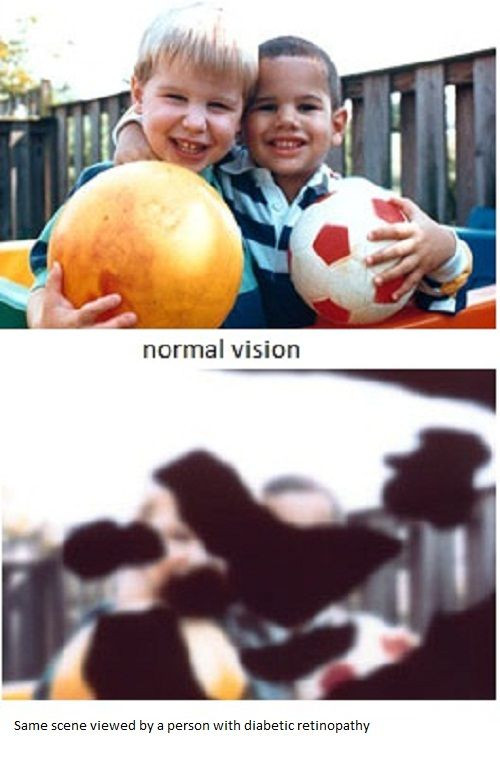New Drug Treatment for Diabetic Retinopathy

Researchers have found a new therapy that could prevent damage to the retina in diabetic retinopathy - an eye disease that occurs with long-term diabetes.
The drug works by interrupting the chain of events that lead to vision loss during this disease. The inflammation and weakening of the blood vessels behind the retina can be stopped by this drug.
Diabetic retinopathy occurs when blood vessels behind the retina begin to swell and leak. In some cases, new blood vessels may be formed behind the retina.
The disease occurs mostly due to presence of a protein called vascular endothelial growth factor (VEGF) that disrupts the retina-blood barrier and cause leakage. Currently, drugs targeting this specific protein have shown good results in preventing retina damage but, researchers say that an inflammation factor can also lead to retina damage.
"In diabetic retinopathy and a host of other retinal diseases, increases in VEGF and inflammatory factors — some of the same factors that contribute to the response to an infection — cause blood vessels in the eye to leak which, in turn, results in a buildup of fluid in the neural tissue of the retina. This insidious form of modified inflammation can eventually lead to blindness," said David A. Antonetti, author of the study and Professor at Department of Ophthalmology and Visual Sciences and Molecular and Integrative Physiology.
The protein that causes leaks in the blood vessels requires an enzyme called atypical protein kinase C (aPKC). The new drug component inhibits this enzyme and protects the blood vessels in the eye.
The drug, tested on rat models, also blocks an inflammation factor called tumor necrosis factor and prevents inflammation in the eye.
"This is a great leap forward. We've identified an important target in regulating blood vessel leakage in the eye and we have a therapy that works in animal models. Our research is in the early stages of development. We still have a long way to go to demonstrate effectiveness of this compound in humans to create a new therapy but the results are very promising," said Antonetti.
The study will be published in Biochemical Journal.



























